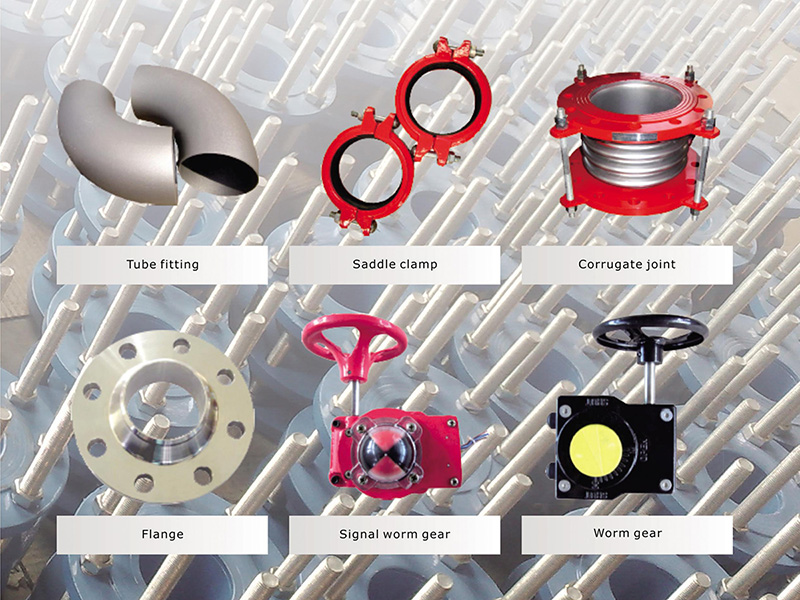10 月 . 08, 2024 18:26 Back to list
Stainless Steel Ball Valve Features and Applications for Efficient Fluid Control
Understanding SS Ball Valves Features, Applications, and Benefits
Stainless steel ball valves, commonly referred to as SS ball valves, are essential components in various industrial applications where fluid control is required. These valves are designed to provide reliable, efficient, and tight shut-off capabilities, making them a preferred choice in many sectors, including oil and gas, chemical processing, water treatment, and HVAC systems.
What is an SS Ball Valve?
An SS ball valve is a quarter-turn valve that uses a spherical disc, known as a ball, to control the flow of fluid through it. The ball has a hole or port through its center, and when aligned with the flow, it allows the fluid to pass. When turned perpendicular to the flow, the ball blocks the flow, thus providing a reliable sealing mechanism. The simplicity of its design, combined with the operational ease, makes it a popular choice for a myriad of applications.
Key Features
1. Material Composition SS ball valves are primarily made of stainless steel, which offers exceptional corrosion resistance and durability. This makes them ideal for harsh environments where exposure to chemicals and other corrosive substances is common.
2. Pressure and Temperature Resistance These valves are designed to withstand high pressures and temperatures, enabling them to function effectively in high-demand systems. This property is crucial in applications such as oil and gas pipelines where extreme conditions are frequent.
3. Flow Efficiency The spherical design of the ball allows for minimal pressure drop when fluid flows through the valve. This characteristic makes SS ball valves highly efficient, ensuring that they do not restrict flow unnecessarily.
4. Ease of Operation Due to the quarter-turn operation mechanism, SS ball valves are easy to operate. Their straightforward design means that they can be actuated manually or through automated systems with minimal effort.
ss ball valve

5. Versatility Stainless steel ball valves can be used for a wide range of fluids, including liquids and gases, making them suitable for numerous applications across various industries.
Applications
SS ball valves find applications in numerous fields, including
- Oil and Gas Industry They are used to control the flow of crude oil and natural gas in pipelines. - Chemical Processing SS ball valves are integral in managing the flow of various chemicals and ensuring safe processing operations. - Water Treatment These valves are often utilized in the filtration systems to regulate water flow and maintain system efficiency. - Food and Beverage Industry Their hygienic design makes them suitable for applications in the food industry, where cleanliness and contamination prevention are priorities.
Benefits
The use of SS ball valves provides several advantages
- Durability Their stainless steel construction leads to a longer lifespan compared to valves made from other materials. - Reliability SS ball valves are less prone to leakage, ensuring system integrity and safety. - Cost-Effectiveness While the initial investment may be higher, their durability and low maintenance requirements lead to cost savings in the long run. - Low Maintenance These valves generally require little maintenance, making them economical over time.
Conclusion
In summary, stainless steel ball valves are critical components that play a significant role in various industrial applications. Their robust design, efficient performance, and versatility make them a trustworthy choice for fluid control. As industries continue to evolve, the demand for reliable and efficient valve solutions like SS ball valves remains paramount.
Share
-
Understanding the Differences Between Wafer Type Butterfly Valve and Lugged Butterfly ValveNewsOct.25,2024
-
The Efficiency of Wafer Type Butterfly Valve and Lugged Butterfly ValveNewsOct.25,2024
-
The Ultimate Guide to Industrial Swing Check Valve: Performance, Installation, and MaintenanceNewsOct.25,2024
-
Superior Performance with Industrial Swing Check Valve: The Essential Valve for Any SystemNewsOct.25,2024
-
Industrial Swing Check Valve: The Ideal Solution for Flow ControlNewsOct.25,2024
-
You Need to Know About Industrial Swing Check Valve: Functionality, Scope, and PerformanceNewsOct.25,2024